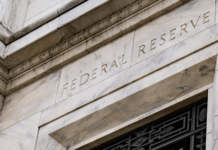It forms part of your Demat account number and helps identify the entity holding your securities in the depository system. A 3-in-1 Demat account offers a trading account, a Demat account and a bank account together to the investor as a comprehensive investment solution. A Demat account offers a secure and convenient way to digitally hold shares and securities, eliminating concerns like theft, forgery, and physical certificate damage. Events such as stock bonuses and mergers automatically reflect in your account. NSDL and CDSL, the primary depositories in India, securely hold electronic securities, eliminating the need for traditional paper certificates. Their crucial role lies in connecting companies issuing shares with investors, ensuring secure and regulated management of investments.
Every account should be linked to your PAN card as per the mandatory Know Your Customer (KYC) requirement. In this article, we will discuss everything related to the Demat account. The Basic Service Demat Account (BSDA) is another type of Demat account that SEBI has created. The only significant distinction between BSDA and standard Demat accounts is the upkeep cost. This is to inform you that by clicking on continue, you will be leaving our website and entering the website/Microsite operated by Insurance tie up partner. This link is provided on our Bank’s website for customer convenience and Bank of Baroda does not own or control of this website, and is not responsible for its contents.
Basic Services Demat Account (BSDA)
The examples and/or scurities quoted (if any) are for illustration only and are not recommendatory. Your Demat account serves as a secure electronic depository for holdings such as stocks and bonds. Execute trades through the linked trading account, and post-transaction, securities are automatically credited or debited to your Demat account. Regularly monitor your portfolio within the account to stay abreast of performance. Just like the bank account that allows you to deposit and withdraw your physical money into digital currencies for easy transactions, demat accounts allow you to deposit and transact in shares.
Although a demat account isn’t mandatory to invest in mutual funds, having access to one can simplify things for you. The evolution of the Indian financial market has been extremely interesting to witness. Nowadays, electronic holding and trading of securities through a Demat account ensures security.
RESIDENT DEMAT ACCOUNT VERSUS NRI DEMAT ACCOUNT
Most brokerage firms, including Choice, allow you to open a Demat account online, making the process more convenient and efficient. DR Demat Account is a special purpose Demat Account which facilitates holding of securities during the transit from overseas Depository System to Indian Depository System. Usually this is during the cancellation of the Depository Receipts (DRs) held in American Depository Receipts or Global Depository Receipts by the investor(s). In addition to the Demat account opening fees, you may need to cover an annual maintenance charge.
Documents Required to Open Demat Account
So, BDSAs help makes it easier for people to invest in the stock market. Yes, a Demat account is mandatory for trading and investing in the Indian stock market. It allows investors to hold and manage securities in an electronic format, eliminating the need for physical certificates.
Regulations for Brokers and DPs: Ensuring Transparency, Security, and Fair Practices
The Website/Microsite is fully owned & Maintained by Insurance tie up partner. Play a pivotal role in facilitating the opening and management of Demat account. SEBI has put in place specific regulations that these market participants must adhere to, ensuring that they follow the highest standards of professionalism and integrity. Ravi and his wife Neha open a joint Demat account to manage their family’s portfolio, ensuring hassle-free ownership transition if one of them passes away or is unavailable for any reason. Explore our FAQs for answers to common questions and concerns related to Demat account. If you need further assistance or personalized guidance, feel free to contact us.
Demat Account Annual Maintenance Charges (AMC)
These accounts require an NRE (Non-Resident External) bank account for the transfer of funds. For example, if you buy 10 shares of Infosys Limited, those shares will be stored in your Demat account. If you decide to sell 5 of them, the Demat account will reflect that change.
- Also, it’s perfect for first-time buyers who are still learning the rules and don’t want to take big risks.
- Brokers and DPs are required to provide Demat account holders with detailed, timely, and accurate statements of all transactions.
- An NRI may invest in India through the Portfolio Investment Scheme (PINS) and their Demat account.
- The Securities and Exchange Board of India (SEBI) plays a vital role in ensuring that the securities market operates in a transparent, efficient, and fair manner.
- If you decide to sell 5 of them, the Demat account will reflect that change.
To continue investing, the individual must convert their current demat account into the NRO category or open a new repatriable or non-repatriable demat account. Acting as intermediaries registered by SEBI, Depository Participants (DPs) are the linchpin between investors and depositories like NSDL and CDSL. They simplify the process of managing digital securities by facilitating the opening of Demat accounts.
Your Demat Account number is compulsory for electronic settlements of the trades and transactions you do. Dematerialization process involves converting physical share certificates into electronic format, which can be stored in a demat Account. Thus, a demat Account is essential for investors like you who want to invest in securities such as stocks, bonds, and mutual funds. It provides easy access to account statements, reduces paperwork, and offers cost-effective trading options, eliminating the risk of theft, loss, or damage. It is important to learn about Dematerialization now that we have explored an introduction to demat accounts.
Opening a Demat account is crucial for participating in equity and F&O markets. The process involves several steps, including submitting necessary documentation and choosing the types of Demat account that best suits your needs. This accessibility and convenience make handling securities electronically much easier. A Regular Demat Account is a Demat account that can be opened by an Indian resident. Moreover, there is no limit on the number or value of securities an investor can hold. Unlike discount brokers we offer multiple services at a very low brokerage charges.
- This account has an annual maintenance charge (AMC), which varies among service providers.
- In that situation, previously owned shares will be moved to the new NRO holding account.
- Pay 20% upfront margin of the transaction value to trade in cash market segment.
- To open a Demat account, you need to meet certain eligibility criteria.
- A Demat account, also known as a Dematerialised account, is a type of account that holds and records your shares and securities.
- There is no restriction to the number of Demat Accounts you can open as long as they are opened with different DPs.
A beneficiary Demat account is types of demat account used when investors hold shares in the name of a third party, such as an investment company or a custodian, for the benefit of the investor. This account allows for easy settlement of securities transactions between buyers and sellers. We’ve discussed what a demat account is, the procedure to open a demat account and how to start your investments using it.
Once the details have been entered, complete your application process at the brokerage platform. Smallcase has partnered with India’s top brokers, like Zerodha, Angel One, 5Paisa, Groww, HDFC securities, Kotak Securities and other top 10 other brokers to give you the most seamless experience. The modus operandi observed is that once a client pays amount to them, huge profits are shown in his account online inducing more investment. However, they stop responding when client demands return of amount invested and profit earned. Investors can select an appropriate Demat account based on their residence status. The said information is neither owned by BFL nor it is to the exclusive knowledge of BFL.
NRI investors are required to designate a power of attorney for transactional activities. The aims and objectives of demat account being established, let’s find out how to choose the ideal demat account for yourself. Different types of specific demat account are suitable for different types of investors. Resident Indians use regular demat accounts while non-resident Indians can choose between repatriable demat accounts and non-repatriable demat accounts. Repatriable demat account and non-repatriable demat account is applicable to NRI demat accounts. To open a repatriable demat account, the NRI must have an NRE bank account linked to demat account.












